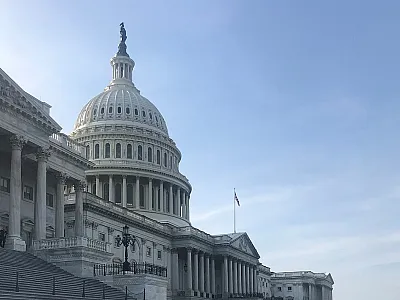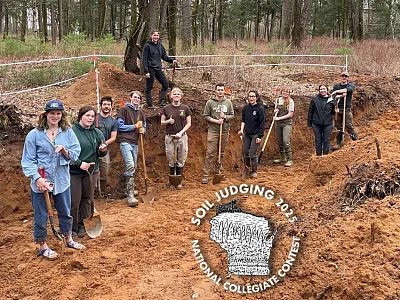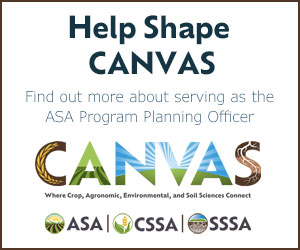The Secret to Getting People to Care About Your Research
Try Folding in Some Feelings With the Facts to Increase Interest
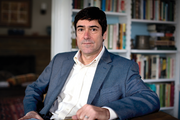
Richard Harris’s long career as a science journalist for National Public Radio has taken him from the South Pole to Japan and from Iceland to Timbuktu. He has interviewed thousands of scientists who study the environment, health, and other topics. And in most of those interviews, he wants to know: “How do you feel about what you do?”
Of course, he asks plenty of questions about their research, too. But by folding in feelings with facts in his stories, Harris shows his listeners that science isn’t just about measurements and linear regression models. It’s also about the curious, driven, passionate people who devote their lives to discovering and sharing new knowledge. And it’s how to get people to pay attention.
Harris drove that message home as the opening keynote speaker at the Societies’ 2022 Annual Meeting in November. (If you missed it, check out the talk online at https://bit.ly/3W0no0w; it will be a half-hour wisely spent). CSA News magazine recently talked to Harris about how emotion can connect scientists to the public. And we started off by turning the tables, asking him to share some feelings of his own.
CSA News: As a science journalist, how would you describe what you do in two to three sentences?
Harris: I find interesting stories to tell that help inform my audience and get them interested in what I'm talking about. I hope to tell them things that might be important to them in their daily lives—as both citizens and as individuals interested in how the world works.
CSA News: And how do you feel about what you do?
Harris: I love it. It is very gratifying to talk to people all around the world about the work they're doing, to hear how excited they are about what they're doing, and to help convey that excitement and the information to my audience.
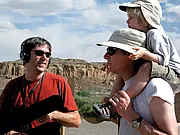
CSA News: A lot of the stories that you hold up as great examples of science communication feature scientists talking about their feelings. What would you say to scientists who have a problem with that?
Harris: Get over it! No, seriously: Science is a human endeavor. I mean, we may like to pretend that facts fall from the sky and the scientists present them to us. But in fact, it's very much a human endeavor. Scientists go into science because they're usually interested in some topic, they're fascinated by something, they have an intellectual curiosity. There's no point in hiding that. I think it's an honest reflection of how science works. It doesn't mean you have to reveal all of your deep, dark, inner secrets. But it does mean that you need to talk about what you're interested in, why you're interested in it, and get people understanding why what you're doing is interesting.
CSA News: Your talk is entitled, “Conveying the Truth in a World of Doubt.” Where does the truth factor in when you're advising scientists to put themselves out there as human beings with feelings and passions?
Harris: Well, don't make up stories about yourself! Tell true stories. Telling the truth is what got you interested in science. Also, do your best to convey the science that you're talking about, including the uncertainties. I think that's a very tricky business—making sure that, as you talk about the science, you help people understand that science is a process. No result is definitive, end of discussion. One thing that's important for people to talk about is where the limits of their knowledge are and where the limits of science are.
CSA News: Why do you think some scientists have a hard time putting themselves out there?
Harris: I think there’s a cultural element to this; it starts even in the way that scientific papers are written. They tend to be written in the third person, and I think there are various reasons for that. But that makes scientists feel like they're removed from what they're doing. On the one hand, I understand the underlying assumption that these things should happen regardless of whether they were in my lab or the lab next door. But the reality is, that doesn't always happen. In fact, there are lots of results that differ—the same experiment comes up with different results from one lab to the next. We all have biases, and I'm not sure scientists recognize how much their own biases enter into the way that they are looking at the world.
CSA News: Describe your nightmare scenario when you are interviewing a scientist.
Harris: Oh, I've had a few just dreadful interviews over the years. No doubt about it. Unfortunately, a lot of scientists can't step back from the language they use every day among their peers and actually speak in simple enough English. And—particularly when I'm interviewing somebody for broadcast—I want to make sure what they say is something that not only I understand, but that my audience will understand. There are often interviews where every sentence is a slog, trying to convince people, “Can you restate that? Can you put that in simpler terms?” Some of those interviews can be very dreadful to wade through.
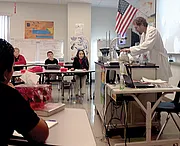
CSA News: Can you recall a dream scenario, a dream interview?
Harris: That is not that uncommon, to have scientists really open up and find ways to describe what they're doing using colorful language, using analogies, using similes, talking about what their passion is. Often the very first question I will ask somebody is, “What got you interested in this topic to begin with?” And sometimes it’s a personal story, sometimes it’s about the dynamics of the field they're in. It can be a lot of different things. But if I can get people starting to tell stories from the outset, then I say, “This is going to be a good interview.”
CSA News: You describe the work of the scientist as a “quest.” Can you explain what you mean by that?
Harris: I think most scientists go into science because they want answers to questions that are hanging, that are open in the field, that either they're personally interested in, or that have been burning issues in the field, or both. That clearly is a quest—scientists are out to try to find the truth as best they can. The idea of a destination in science is really nonsensical. But the idea of a quest is absolutely what I see people pursue across their careers. I think that, in general, scientists are trying to do good in the world, and I think that most scientists embrace those ideas—that, “I'm going to come up with a new drug or a better way to sequester carbon or a more effective crop that will feed more people.” Whatever it is—but certainly in the interest of the planet and humanity.
CSA News: According to a Pew Research Center study conducted at the end of 2021, 77% of Americans have at least a fair amount of confidence that scientists act in the public interest. What does this relatively high level of trust mean for scientists trying to communicate about their work?
Harris: It means that scientists should be confident that people care about what they're doing and that they're likely to be believed. And that’s another reason that it's important to follow the advice that I offer, which is: Have a conversation. Talk to the person first, find out where they're coming from, what they think, before you immediately step in. You may have a conflict of values or other deep disagreements with the individual, and you have to approach that conversation with a lot more care than if it turns out that they see eye to eye with you on the big issues of the day. I think that trust that Pew describes puts scientists at a tremendous advantage, potentially, in these conversations. But it can be squandered if you don't take the time to find out what the individuals you're talking to actually think and feel.
People need to realize that just doing the lab work or the field work isn’t the whole story. If they can’t share it effectively, they might as well have not done the work.
CSA News: Should science communication training be required for students on a STEM career path?
Harris: Yes. Even if a scientist never plans to talk to the public, the scientist should have some understanding about how to communicate with their peers, at the very least. Most scientists are not going to be public speakers. I think that's of secondary importance for most scientists. But there could come a time when they talk to a journalist, and they need to know how to do that, or they may want to talk to classes of school kids, and they should know how to do that. People need to realize that just doing the lab work or the field work isn't the whole story. If they can't share it effectively, they might as well have not done the work.
CSA News: What science communication challenge would you like to issue to our members?
Harris: Go to a middle school class, and tell middle-schoolers what you're doing, and use language that they will understand. Obviously, that means thinking about what middle-schoolers understand and how what you do intersects with them. You could inspire kids to think about science as, at least, a social value and possibly as a career. Another challenge is: Talk to lawmakers. Don't just sort of blunder into the office: Societies, including yours, have programs (see sidebar) that help people figure out how to talk to lawmakers. That's where scientists can be most effective in helping encourage good scientific reasoning behind decisions and funding for science. If you're talking about communicating beyond your own peers, that’s the single most important thing you can do.
This interview has been edited for length and clarity.
Be a Better Science Communicator
Want to talk about your science more effectively? Check out these helpful, members-only articles: agronomy.org/communications-toolkit, crops.org/communications-toolkit, and soils.org/communications-toolkit (requires login with your membership credentials).
If you want to engage with lawmakers, the Societies offer opportunities and training in that area as well. See agronomy.org/science-policy/get-involved, crops.org/science-policy/get-involved, and soils.org/science-policy/get-involved.
Text © . The authors. CC BY-NC-ND 4.0. Except where otherwise noted, images are subject to copyright. Any reuse without express permission from the copyright owner is prohibited.







